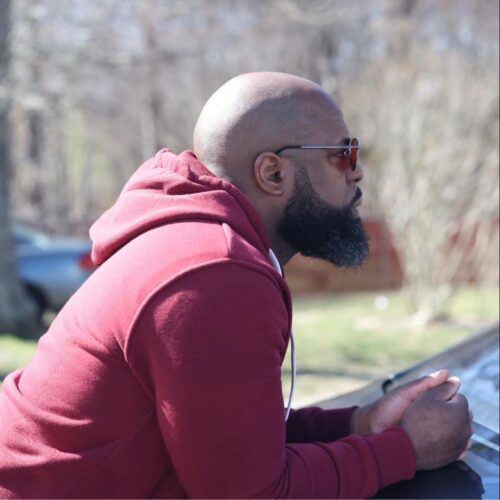
Avion Gordon: A Life of Service, Wrongfully Taken, Permanently Altered The Fight for Justice After Traumatic Brain Injury in Custody
Before 2018, Avion Gordon was a man dedicated to serving others. A skilled nurse, a former firefighter, and a consistent volunteer at his community food pantry, he built a life around caregiving and contribution. He was a respected member of his community, known for his compassion and commitment. That life was unjustly interrupted and, ultimately, irrevocably altered.
Mr. Gordon's journey took a devastating turn when he was wrongfully incarcerated at the Suffolk County Jail. While held in custody, he endured a violent assault that left him unconscious, a blackout event followed by unmistakable signs of severe neurological trauma: disorientation, nausea, and acute light sensitivity.
Despite these clear indicators of a traumatic brain injury, what followed was, according to medical standards and Mr. Gordon's experience, a shocking betrayal of trust. Documented records reveal that medical staff in the jail not only dismissed the severity of his condition but, in a profound act of alleged disregard, intentionally misrepresented his status on official paperwork to deny him the necessary specialized care. This deliberate falsification on official paperwork served to subvert the essential medical steps that should have followed, leaving him to endure instead a brief ECG monitoring for just one day. This stands in stark contrast to the medically recognized standard of observation for head trauma victims, which is at least 72 hours, often longer, supported by thorough neurological assessment. That critical window for evaluation and potential intervention was, he alleges, lost due to institutional indifference and inadequate protocols.
Today, the devastating consequences of that failure are medically verified. An independent neuropsychological evaluation has confirmed that Mr. Gordon now lives with permanent cognitive and emotional impairments resulting directly from the traumatic brain injury sustained in custody. His diagnoses include:
- Major Neurocognitive Disorder due to Traumatic Brain Injury, with Behavioral Disturbance (F02.81)
- Diffuse Traumatic Brain Injury with Loss of Consciousness, Sequela (S06.2X9S)
- Post-Traumatic Stress Disorder (F43.10)
These complex diagnoses translate into profound daily challenges. He experiences significant executive dysfunction, impacting his ability to organize tasks, manage attention, and regulate his behavior. Cognitive impairments manifest as severe short-term memory loss, slowed processing, and frequent disorientation. He suffers from behavioral withdrawal, including social isolation, anxiety, flashbacks, and severe stress responses triggered by reminders of the legal system that failed him.
The functional decline is heartbreakingly clear. Avion, the former nurse who cared for others, can no longer manage his own finances, appointments, or travel independently. His family, navigating their own grief and concern, worries when he is behind the wheel with fear he will forget where he is going.
As Avion himself recounts, the loss is deeply personal and profound: "I was a nurse. I had a career. I'm a father, a brother, a son. I can't go back to what I worked for. I can't work in nursing again. My brain doesn't work the way it used to. My family doesn't even feel safe with me behind the wheel—how could I take care of someone else?"
This devastating injury occurred while Mr. Gordon was being held on charges he consistently maintained were fabricated. Ultimately, the case against him was dismissed in the interest of justice, a profound acknowledgment of the baseless nature of the accusations. His wrongful incarceration stemmed from charges allegedly brought forth by elements within the Suffolk County Police Department’s Human Trafficking Unit and pursued by county prosecutors.
Avion Gordon is now fighting for justice, pursuing litigation against Suffolk County to hold the system accountable for the alleged failures that shattered his life. From profound personal trauma, he has forged a powerful purpose, becoming a vocal advocate for brain injury justice and systemic carceral reform, determined to ensure that what happened to him does not happen to others.

